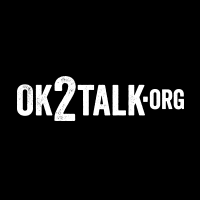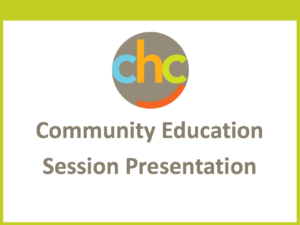The Brain-Changing Power of Conversation
 For parents, childcare providers, and early educators, new research describes a simple and powerful way to build children’s brains: talk with them, early and often. Read more »
For parents, childcare providers, and early educators, new research describes a simple and powerful way to build children’s brains: talk with them, early and often. Read more »
 For parents, childcare providers, and early educators, new research describes a simple and powerful way to build children’s brains: talk with them, early and often. Read more »
For parents, childcare providers, and early educators, new research describes a simple and powerful way to build children’s brains: talk with them, early and often. Read more »
Robert L Hendren, DO, Professor of Psychiatry and Behavioral Science and Co-Director of the UCSF Dyslexia Center discusses the frequency with which anxiety co-occurs with ADHD and/or learning disorders. In this presentation, Dr. Hendren explores types of anxiety disorders and reviews assessment strategies and treatment options. Read more »
 There are days (okay, maybe a lot of days) where we feel like we’re constantly saying “don’t” and “no.” It’s our job as parents to set and enforce boundaries and to keep our children safe. Our children also need to hear us say things will make them feel good about themselves— things that can lift their spirits and sustain them in good times and bad. Read more »
There are days (okay, maybe a lot of days) where we feel like we’re constantly saying “don’t” and “no.” It’s our job as parents to set and enforce boundaries and to keep our children safe. Our children also need to hear us say things will make them feel good about themselves— things that can lift their spirits and sustain them in good times and bad. Read more »
Are there students in your classroom that tend to act out and disrupt the entire class?
Teaching behavioral expectations and providing rewards is a much more positive way to manage behavior in the classroom—much better than waiting for the misbehavior to occur and then providing consequences. Read more »
 A public service campaign from the National Alliance on Mental Illness (NAMI), OK2TALK.org is an online community where teens and young adults struggling with mental health conditions can find a safe place to talk about what they’re experiencing by sharing their personal stories of recovery, tragedy, struggle or hope. Read more »
A public service campaign from the National Alliance on Mental Illness (NAMI), OK2TALK.org is an online community where teens and young adults struggling with mental health conditions can find a safe place to talk about what they’re experiencing by sharing their personal stories of recovery, tragedy, struggle or hope. Read more »
How can we help the children in schools across the country who, in the wake of another school shooting, struggle to cope with feelings of fear, confusion and uncertainty? Read more »
 Learn more about technology supports can compensate for executive function challenges and help build more robust executive function skills.
Learn more about technology supports can compensate for executive function challenges and help build more robust executive function skills.
Shayla Whiteley, M.A., experienced learning specialist shares her insights and knowledge to provide you with a greater understanding of how some types of technology can support executive functioning. Read more »
Are there students in your classroom that struggle with learning? Perhaps those students have a diagnosed or undiagnosed learning issue. In this teacher ed class, Jeff Kozlowski, former Head of Sand Hill School at CHC, reviews the types and signs of learning differences and the impact they can have on a student’s social and emotional well-being. Read more »
What is an IEP? What do all those test scores mean? What should be included in an IEP and how do I know my child is accomplishing the goals listed on her IEP? Learn all about IEPs from expert educator and Chief Education Officer at CHC, Chris Harris. Read more »
 Only about 50 percent of adolescents with depression get diagnosed before reaching adulthood. And as many as 2 in 3 depressed teens don’t get the care that could help them. To address this divide, the American Academy of Pediatrics has issued updated guidelines this week that call for universal screening for depression. Read more »
Only about 50 percent of adolescents with depression get diagnosed before reaching adulthood. And as many as 2 in 3 depressed teens don’t get the care that could help them. To address this divide, the American Academy of Pediatrics has issued updated guidelines this week that call for universal screening for depression. Read more »